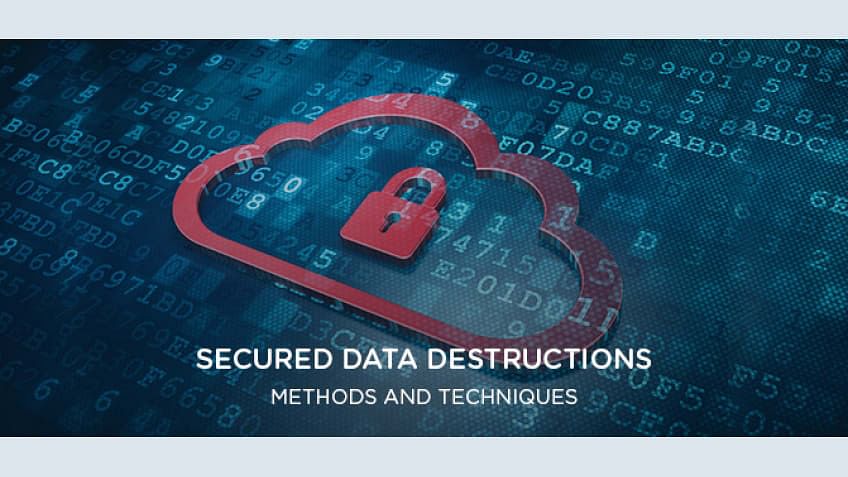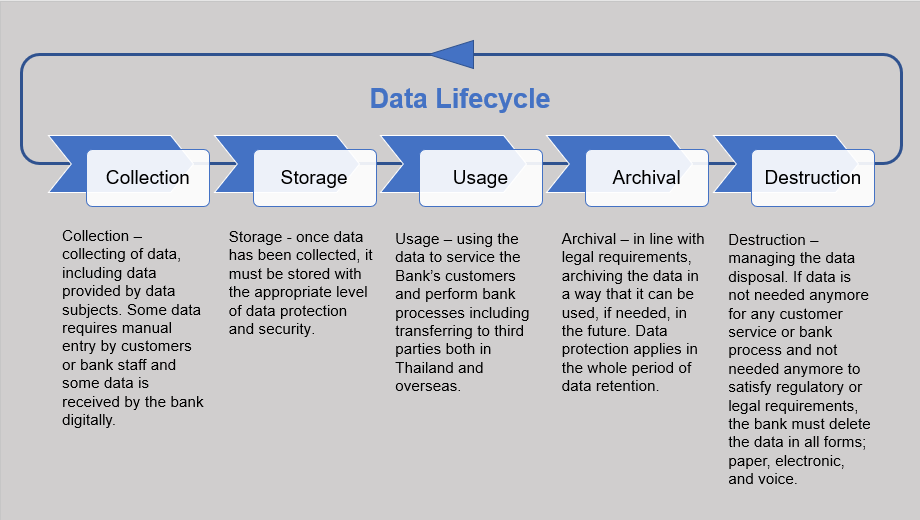The Essential Nature of Information Devastation in Upholding Computer System Security Solutions and Protecting Versus Unauthorized Gain Access To
In a period where data breaches and identity burglary are significantly widespread, the value of reliable information destruction can not be overstated. Organizations must recognize that the failing to correctly take care of sensitive info positions not only legal and economic dangers however likewise a potential erosion of customer count on. Various methods, from data cleaning to physical damage, act as critical safeguards versus unapproved accessibility. Nevertheless, comprehending the ramifications of data destruction techniques and conformity with policies elevates crucial questions about the competence of current techniques and their lasting feasibility in the face of progressing hazards.
Value of Data Destruction
In an increasingly electronic globe, the importance of data devastation can not be overstated. As organizations generate substantial quantities of delicate information, the prospective effects of falling short to effectively dispose and take care of of that information become progressively extreme. Data violations, identification burglary, and company reconnaissance posture significant risks, highlighting the need of reliable information destruction practices.

Furthermore, as technology progresses, so too do the techniques whereby destructive actors look for to manipulate delicate details. Organizations should stay watchful and proactive in their data damage strategies to protect versus these advancing risks. By prioritizing data destruction, business not just safeguard their possessions yet likewise foster trust among customers and stakeholders, showing a commitment to accountable information administration and safety and security methods.
Approaches of Effective Information Destruction
To make sure the full and irreversible destruction of delicate data, organizations can utilize a selection of reliable techniques customized to their details requirements. Among the most usual approaches is information wiping, which entails using specialized software application to overwrite existing information numerous times, making healing basically difficult. This is particularly valuable for hard disk drives and solid-state drives, where standard removal approaches are insufficient.
One more efficient strategy is degaussing, which uses strong magnetic fields to interrupt the magnetic domain names on storage media, rendering the information irretrievable. This approach is especially suited for magnetic storage space gadgets, such as disk drive and difficult disks.
Physical devastation is likewise a sensible alternative, entailing the shredding, squashing, or incineration of storage tools. This approach assurances that data can not be recovered, making it optimal for organizations managing extremely sensitive information.

Conformity With Data Security Regulations
Organizations must not just concentrate on reliable data damage methods but likewise make certain compliance with data security laws that regulate how delicate information is taken care of and dealt with. Sticking to these laws is vital for guarding individual information and keeping customer trust fund. Rules such as the General Information Defense Policy (GDPR) in the European Union and the Medical Insurance Portability and Accountability Act (HIPAA) in the United States enforce rigorous standards on information administration, that include requirements for the secure disposal of click to read more sensitive details.
To achieve compliance, organizations should execute detailed information damage policies that align with these legal frameworks. This consists of determining data that requires devastation, establishing methods for safe methodsâEUR" such as shredding physical media or making use of software program that satisfies market requirements for information wipingâEUR" and preserving detailed records of destruction tasks. Regular audits ought to be carried out to guarantee adherence to these plans and to determine any kind of possible areas for enhancement.
Failure to abide by data defense laws can result in considerable lawful implications, including substantial penalties and damage to a company's online reputation. Integrating compliance right into information destruction techniques is not only a legal obligation yet likewise an essential component of a robust details safety and security approach.
Consequences of Poor Data Handling
Poor information handling can cause serious consequences that prolong beyond prompt operational problems. Organizations might face considerable economic losses due to information breaches, which often lead to my explanation expensive removal efforts, lawful costs, and regulatory penalties. These financial ramifications can hinder and stress resources growth, inevitably affecting a company's lower line.
In addition, inadequate data handling can drastically damage an organization's track record. Stakeholders, companions, and clients might shed rely on an entity that fails to safeguard sensitive info, bring about reduced consumer commitment and possible loss of service possibilities. This disintegration of count on can take years to rebuild, if it can be restored in all.
Additionally, organizations can encounter legal ramifications arising from non-compliance with information defense guidelines. Such infractions might cause fines and examinations, worsening the monetary burden and additional tarnishing the company's picture.
In the realm of cybersecurity, poor information administration practices can create susceptabilities that make systems a lot more at risk to unauthorized access and cyberattacks. Eventually, these effects underscore the vital significance of executing robust data handling treatments to safeguard delicate info and maintain organizational integrity.
Best Practices for Secure Information Disposal


Firstly, data need to be classified according to its level of sensitivity. Sensitive Visit Your URL info needs much more extensive disposal approaches, such as shredding physical records and making use of advanced software for digital data wiping. Using qualified data devastation solutions ensures conformity with sector laws and criteria.
Second of all, organizations must carry out an information disposal plan that mandates normal audits. This policy should outline the procedures for data retention and devastation, ensuring that out-of-date information is gotten rid of immediately and firmly. Educating workers on these procedures is important to fostering a society of protection understanding.
Finally, keeping comprehensive records of disposed data boosts responsibility and provides a clear audit path. This paperwork should include the sort of data damaged, the technique made use of, and the date of disposal.
Verdict
Adopting durable approaches such as information wiping, degaussing, and physical damage, alongside compliance with policies like GDPR and HIPAA, is necessary for securing delicate information. Overlooking appropriate information disposal practices can lead to serious effects, including data breaches and legal consequences.
In an era where information violations and identification theft are increasingly widespread, the significance of effective information devastation can not be overstated. data destruction. Information violations, identification theft, and company espionage posture significant risks, highlighting the necessity of efficient information devastation techniques
Compliance with policies such as GDPR and HIPAA requireds that companies apply rigid data protection steps, consisting of the protected destruction of information at the end of its lifecycle.
By prioritizing information devastation, firms not just safeguard their possessions yet likewise foster depend on among customers and stakeholders, demonstrating a dedication to accountable information management and safety methods.
Organizations have to not just focus on effective data devastation approaches but also ensure conformity with information security regulations that control how delicate information is dealt with and disposed of.
Comments on “Finest Practices for Data Destruction to Strengthen Your Cyber Security Framework”